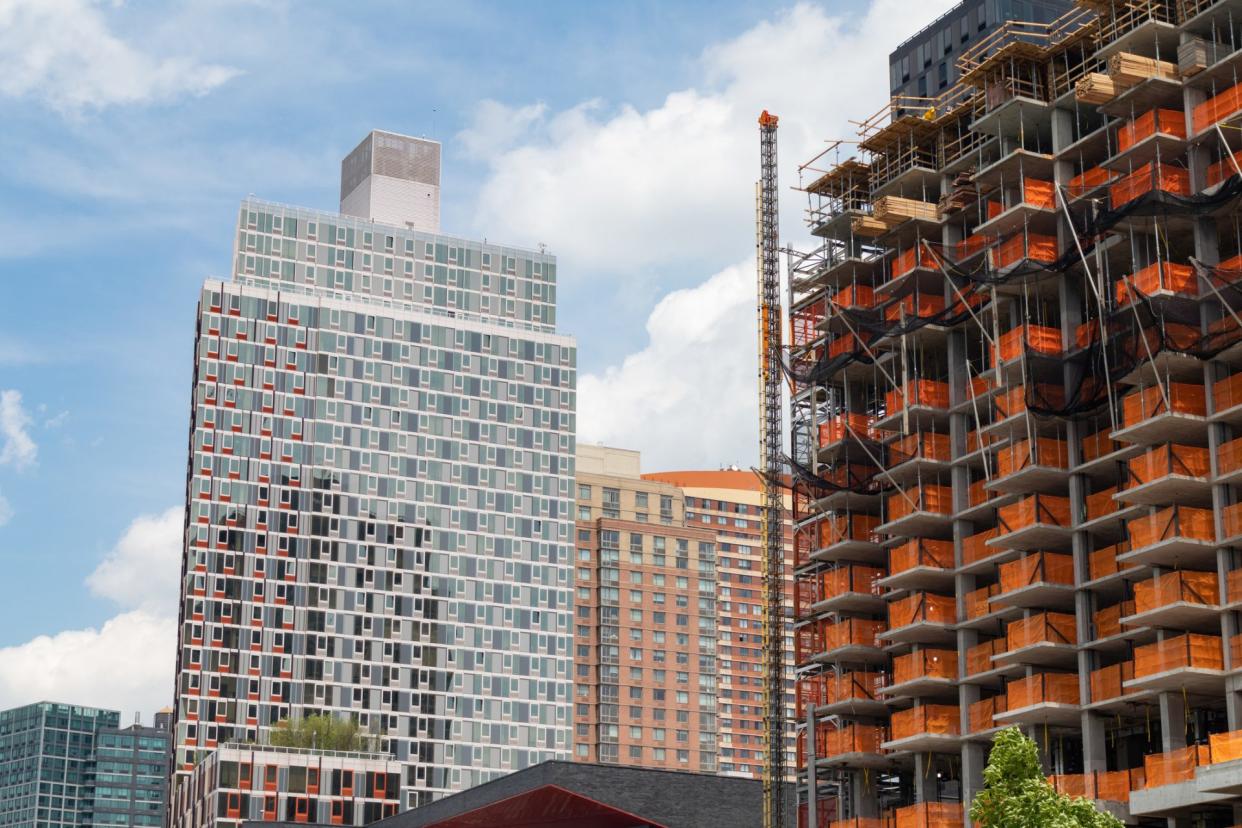New York City Could Face New Real Estate Worries as 421a Tax Exemptions are Set To Expire

Real estate developers have enjoyed a tax exemption called 421a for the last five years which has facilitated building in New York City through the coronavirus pandemic and the resulting worst real estate market in decades. As the June 2022 exemption expiration looms closer, developers are scrambling to prepare for the event they have to get projects off their books entirely.
Discover: How To Find the Perfect Apartment in 2021: 7 Best Apartment Websites
Dream Big: Dream of Renting a Luxury Apartment? You Can Afford To in These 20 Cities
What is a 421a?
The 421a is a tax exemption in New York state that is given to real-estate developers for building new multi-family housing in New York City and was set up out of fear that if developers were given tax breaks outright, they would build big, new apartment buildings intended for the wealthy. To hedge this, the state government also included the rule that portions of new developments be made “affordable” in order for the units to qualify for the tax exemption.
Should a building qualify, developers are granted a 100% tax exemption for up to three years during construction, plus a 100% exemption for 25 years after construction and scaled back tax breaks for another 10 years upon project completion. A large part of the deal is the requirement for tiers of affordable housing including low-and-middle-income and workforce-rate pay ranges.
How Did It Come To Be?
When the original exemption expired in January 2016, what ensued was a fight between the state legislature and building trades unions for a new deal. During the negotiations, Gov. Andrew Cuomo would not back down on affordable housing, while the unions wanted higher wages for what they deemed a surge in demand on project books.
The compromise, called “Affordable New York,” effectively increased the percentage of affordable housing units developers had to produce in Manhattan, as well as along the Brooklyn and Queens waterfronts, while simultaneously increasing wages for union workers on the projects. For the last four years, taxpayers footed the bill for both increases.
How It Affects Real Estate Now
With the exemption set to expire in June of next year, many developers are simply throwing in the towel instead of scrambling to break ground before the deadline arrives. Real estate attorney Kevin Power told the Commercial Observer that investors who are faced with what they deem an impossible deadline to meet are starting to change their minds about residential development deals.
“When you tell them they have to be in the ground in less than a year to get the 421s benefits, I’ve had clients say ‘I can’t do that deal — I’m not buying that site since I don’t know if I can meet that [June 2022] deadline the project’s not feasible without it” Power added.
Work Benefits: Target Offers 100% College Tuition (Plus Textbooks) To Attract Workers, Following In Walmart’s Footsteps
Save Money: Buying a House Is Crazy Right Now — Consider Renting in These 10 Cities To Save Money
This has serious potential implications for the real estate market. New York City had a flurry of development projects with apartments sprouting up throughout the city — then the coronavirus pandemic hit. With people fleeing urban areas for the suburbs, prices dropped on already existing buildings while construction in many areas was forced to halt altogether. Projects that were delayed because of the pandemic are expected not to make the 421a deadline next year.
Exactly what ramifications this will have on prices will likely depend on where residents need to live. Should remote work become the new normal, and people permanently prefer to stay out of the city, prices could sustain their downward trajectory. Should a return to the office be in the cards for New York’s employees, as many financial firms have already suggested, a renewed demand with a fresh drop in supply could work in the reverse to actually direct prices upwards.
More From GOBankingRates
This article originally appeared on GOBankingRates.com: New York City Could Face New Real Estate Worries as 421a Tax Exemptions are Set To Expire

 Yahoo Movies
Yahoo Movies 
